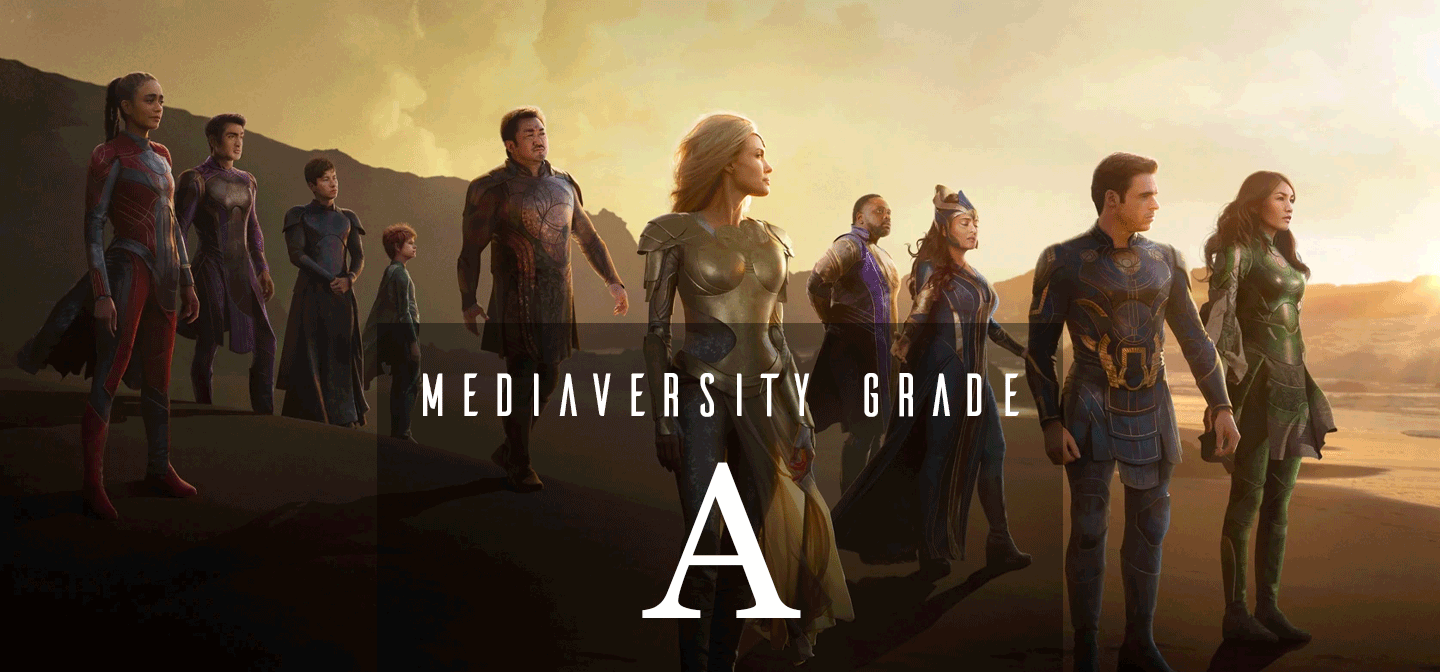Don't Look Up
“It’s still sadly rare to see female characters working in STEM given the grace to be imperfect on screen.”
Title: Don’t Look Up (2021)
Director: Adam McKay 👨🏼🇺🇸
Writers: Screenplay by Adam McKay 👨🏼🇺🇸 and story by David Sirota 👨🏼🇺🇸
Reviewed by Li 👩🏻🇺🇸
—MAJOR SPOILERS AHEAD—
Technical: 3.5/5
In remembering writer-director Adam McKay’s Vice (2018), his last movie up for Best Picture at the Academy Awards, I did not have high hopes for Don’t Look Up. But while the messy, conflicting messages of his Dick Cheney satire flopped for me, somehow that very same ambiguity clicks when applied to the equally messy subject we call humanity.
Centering the global crisis of a fast-approaching comet collision that would level the planet, Don’t Look Up takes jabs at our sheer inability to put politics aside and work together, even when it means all our lives are at stake. This fictional narrative neatly sidesteps the main difficulty of Vice, where McKay had to contend with the legacy of a still-living vice president. Instead of grappling with real-world politics, all viewers have to do in Don’t Look Up is track planet Earth’s final days and enjoy all the dark, self-deprecating humor that comes with such a parable.
Put simply, the film doesn’t challenge anything real. It just grabs onto human pathos for a laugh. I’m not sure why this rather silly film warrants a nod for Best Picture, but it sure is entertaining while it lasts.
Gender: 3.75/5
Does it pass the Bechdel Test? YES
Our three heroes include professor Dr. Randall Mindy (Leonardo Dicaprio), NASA scientist Dr. Teddy Oglethorpe (Rob Morgan), and PhD candidate Kate Dibiasky (Jennifer Lawrence). Kate has a great, round characterization as the woman who discovers the comet set to crash into Earth, smart as hell but also a bit of a stoner. While the film refrains from exploring her personal and home life to the extent that it does for Dr. Mindy, she does get a side plot: a romance with a gamer named Yule (Timothée Chalamet).
I only wish we could’ve see Kate interact with other women, but true to so many sci-films that feature token women in STEM roles, she’s usually surrounded by men. Sure, female characters dot the background in these scientific and academic environments, but they generally stay silent or are, at most, given a one-line question to lobby at the nearest man. (In this case, almost always Dr. Mindy.)
It’s unfortunate that Kate’s complexity is not extended to the film’s supporting women, who each fall into caricature. United States President Orlean (Meryl Streep) is a villain who stymies progress at every turn for political gain; Cate Blanchett plays TV show host Brie and her comical hypersexuality finds her strong-arming Dr. Mindy into a torrid affair. And in the most sigh-inducing role, Dr. Mindy’s wife June (Melanie Lynskey) suffers the ignominious plot of finding out her husband is cheating on her, then taking him back without a fuss once the end of the world has arrived. It’s true that so many side characters of Don’t Look Up fall into cartoonish roles, such as Jonah Hill’s gleeful rendition of President Orlean’s jester-like son. But Brie and June especially echo decades upon decades of such two-dimensional characters—the seductress and the overly loyal wife—that their repetition here feels tiresome to watch.
Race: 3.5/5
Dr. Oglethorpe, who heads NASA’s Planetary Defense Coordination Office, does make up one of the three main protagonists of the film; however, he’s by far the least developed. The most we ever glimpse of his home life includes observing the man as he sits on his couch in sad, dim lighting, petting a fluffy cat as he watches Dr. Mindy and Kate guest star on Brie’s morning show.
His character isn’t strictly written to be colorblind; when the three scientists are abducted by agents sent by the White House, Dr. Oglethorpe’s response to getting cuffed is, “Okay, now be cool. I just have more skin pigmentation than you.” But this is the extent to which the film recognizes his Blackness, rendering it shallow, if not cringeworthy, that the sole reference to race takes place when a Black man is held at gunpoint by white officers. The scene feels slightly mitigated as the same thing happens to Kate right away—she’s surrounded on Michigan State campus by FBI agents, made to kneel with guns pointed at her as a bag’s thrown over her head. But the idea holds; Don’t Look Up would have fared better if it recognized Dr. Oglethorpe’s Blackness without reverting to such loaded visuals.
In a much smaller role, Gujurati British actor Himesh Patel plays Kate’s backstabbing boyfriend, Phillip Kaj. As a journalist, the second that social media turns against Kate for yelling about the end of the world on Brie’s show, he fires off a clickbait article headlined “You Know The Crazy Chick Who Thinks We're All Going To Die? I actually slept with her." Finally, seen in just a few cameo-like scenes, Tyler Perry plays Brie’s on-show partner Jack who is just as vapid as so many of the supporting characters McKay seems to delight in ridiculing as the unintelligent masses.
Mediaversity Grade: B- 3.58/5
An energetic if aimless dark comedy, Don’t Look Up makes for an enjoyable flash in the pan. It doesn’t say much beyond turning a snarky mirror onto American society, but it’s nice to see a complex female lead among a recent cluster of stories that chart cosmic catastrophe, including Roland Emmerich’s Moonfall (2022) and Korean-language Netflix series The Silent Sea. In these other works, women feature as professional astronauts and biologists, but only in Don’t Look Up does Kate also get the freedom to smoke a joint, cry a lot, and yell at people while getting vindicated by film’s end. It’s not much to ask for, but still sadly rare to see female characters working in STEM given the grace to be imperfect.




